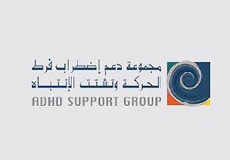A Guide to recognising ADHD: Challenges and dilemmas
What is ADHD? 
ADHD (attention deficit and hyperactivity disorder) is a neurobiological disorder that can affect child behavior, influence learning and development process, and cause attention-related problems.
A child with ADHD can suffer from one or more of the following depending on his condition:
Inattention
hyperactivity
Impulsive behavior
Symptoms must:
Start before age of 7.
Persist for at least 6 months.
Be inconsistent with the developmental level of the child.
Cause significant impairment of functioning.
Be present to some degree in more than one setting (e.g. home and school).
Research has shown developmental delays of 30 percent in areas such as in motor skills, independence, and peer relationships. As a consequence, a student with ADHD may seem less mature and less responsible than his peers.
What causes ADHD?
The exact cause or etiology of ADHD is unknown. However studies indicate that ADHD is caused by multiple genes of small effect operating together with environmental risks. Environmental factors include smoking mother, birth complications and others.
In addition, many studies have suggested that dietary factors may play a significant role in the etiology of the majority of children with ADHD. Removing caffeine, food additives such as preservatives and artificial colourings from diet of ADHD children showed improvement in their behavior.
What are the different types of ADHD?
There are three different types of ADHD:
Combined ADHD (the most common type), which involves all of the three symptoms of inattention, hyperactivity and impulsive behaviour.
Inattentive ADHD (previously known as ADD), which is marked by impaired attention and concentration, without hyperactivity.
Hyperactive-impulsive ADHD, which is marked by hyperactivity and impulsive behaviour but without inattentiveness.
What are the symptoms of inattention?
Inability to sustain attention
Easily distracted by irrelevant stimuli.
Difficulty paying attention to small details.
Tendency to make careless mistakes.
Difficulty finishing schoolwork or tasks that require concentration.
Frequent shifts from one uncompleted activity to another.
Forgetfulness in daily activities (for example, missing appointments, forgetting to bring homework).
Frequent shifts in conversation, not listening to others
What are the symptoms of hyperactivity?
Hyperactivity symptoms include:
Being unable to sit still, especially in calm or quiet surroundings
Constantly fidgeting
Being unable to settle to tasks
Excessive physical movement
What are the symptoms of impulsive behavior?
Impulsiveness symptoms include
Impatience
Blurting out answers too soon
Frequently interrupting others
Initiating conversations at inappropriate times
Are ADHD children all alike?
All children with ADHD are not alike. Symptoms can vary from mild to severe. This will result in differences in skills and maturity level.
What is the responsibility of the parents?
The first responsibility of the parents is to seek medical advice, if they have a concern about their child’s development and behaviour. Parents, who sought medical advice, have already taken a major step towards helping their child. ADHD can be diagnosed by a psychiatrist or a neurologist.
How can parents play a positive role in raising their ADHD child?
Parents can play a positive role by:
Finding out as much as possible about ADHD and explaining it to other members of the family and teachers; this is highly important because ADHD is still widely misunderstood and mostly misinterpreted as the” bad parenting”.
Using certain skills and techniques to help the child behave better and concentrate for longer.
Encouraging and helping the child to follow the treatment recommended by the doctors.
What is Co-morbidity?
Co-morbidity is the presence of one or more disorders in addition to a primary disease or disorder. In the case of ADHD other coexistent disorders may include:
What are the available medical treatments for ADHD?
The medicines available for ADHD include both stimulants and non-stimulants.
For many patients stimulant medications markedly and rapidly reduce symptoms of restlessness, inattentiveness and impulsiveness, while in the longer term improve the quality of social interactions, decrease aggression and increase compliance. Stimulants and non-stimulants are usually well tolerated but there are certain side effects. Common side effects include loss of appetite, nausea and worsening of tics.
Methylphenidate up to 60mg/day has been shown to be effective for up to a year in numerous placebos controlled randomised trials. This is usually the first choice of medication. The effect of methylphenidate lasts only for a few hours, so three daily doses are recommended. Longer acting formulations of methylphenidate are now available.
In 2004, a non-stimulant Atomoxetine has been licensed for the treatment of children and adolescents with ADHD. It is usually prescribed once or twice daily.
What other treatments are needed for children with ADHD?
Training in social skills to help children make and keep relationships and avoid aggressive behaviour
Psychotherapy to improve self-esteem
Remedial teaching to overcome learning disorders
Co-morbid psychiatric disorders may often require additional treatments which need to be coordinated with the treatments given for the ADHD.
For how long do children and adolescents need medication for ADHD?
The duration of treatment cannot be predetermined.
The child may require medication for several years, and some adults might still need medication. However, medication should be discontinued periodically to assess the continuing need for it.
What is the long-term prognosis of ADHD?
Inattention tends to persist through childhood and adolescence and into adulthood. The symptoms of hyperactivity and impulsivity tend to diminish with age.Some children with ADHD develop learning problems that may not improve with ADHD treatment.
A great number of children with ADHD will adjust ultimately.
What about the positive side of ADHD?
Parents of children with ADHD while struggling to improve their child’s behavior, tend to forget about any positive qualities of their child. Parents and society must stop thinking of an ADHD child as "abnormal", but should perceive him as "different". Only then it will be possible to see the positive side of ADHD. Many celebrities have made the most out of the gift of ADHD, by channelling their excess energy into something useful. It is worth learning from the experience of the long list of famous people who were thought to have ADHD such as Albert Einstein, Isaac Newton, Thomas Eddison, Walt Disney, Michael Jordan and many more.